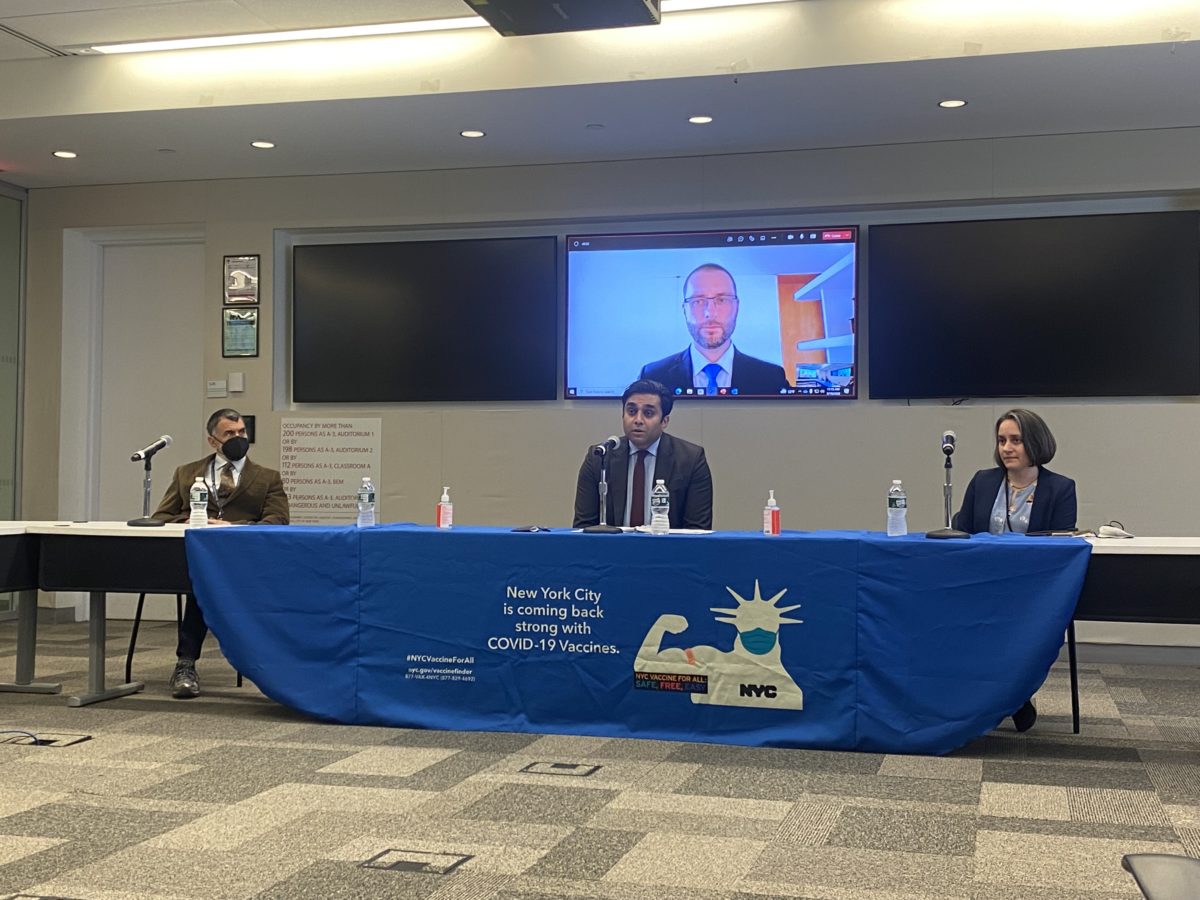City’s New Top Doctor gives COVID briefing
Dr. Ashwin Vasan has taken over as the city’s top doctor at the two-year mark of the ongoing pandemic.
Officially taking the reins from Dr. Dave Chokshi on March 16, Vasan held his first briefing last week in Queens alongside President and CEO of NYC Health + Hospitals, Dr. Mitchell Katz and Director of NYC Test and Trace Corps, Dr. Ted Long.
“Although it’s only my first week on the job, I understand how important regular communication is with all of you,” Vasan said to the press. “While the losses of the last two years have been profound, we’ve also developed tools in that period that are saving lives, including testing, prevention and new treatments, like antiviral pills.”
“It’s an honor to be the city’s doctor. Something you’ll hear me talk a lot about is the emotional toll that this pandemic has taken on all of us. We have all been through so much over these past two years and continuing uncertainty about the future of COVID can certainly add to the strain on New Yorkers mental health and well being,” Vasan said.
As of March 21, the city’s seven-day and 28-day average positivity rates are trending in the right direction with 1.66 percent and 1.89 percent rates, respectively.
Although he said New York City is currently in a “low-risk environment”, Vasan said he and his team at the city’s Department of Health and Mental Hygiene is monitoring the presence of the BA.2 subvariant of Omicron.
Dr. Celia Quinn said that ‘about 30 percent’ of cases in the city can be attributed to the subvariant, and that while it appears to be more transmissible than other strains of Omicron, it does not appear to cause more severe illness.
“I think the important thing to remember and to emphasize for New Yorkers is that currently, there’s no evidence that BA.2 causes more severe illness, increases risk of hospitalization, or that our current vaccines offer less protection against it,” Vasan said.
With just 55 percent of New Yorkers aged 65 or older who received their booster or additional dose, Vasan and his team stressed the importance of vaccines and reconnecting with health care providers.
As some mask mandates have been relaxed in city schools and other places, Vasan and Katz hesitated to say what it would take to lift a workplace vaccine mandate.
“People who have tried to predict what’s going to happen in the future for this pandemic have repeatedly found egg on their face, as they say, and I’m not going to do that here today,” he said.
Dr. Katz added, “Nobody has suggested that we should, you know, because polio levels are so low, we should say that schoolchildren shouldn’t be vaccinated for polio. I think vaccine mandates have a long and important history in public health.
“If you have childhood vaccinations, then everybody grows up to be vaccinated. So it turns out to be irrelevant, right? The point of childhood vaccinations is by doing it at childhood, you’re giving the person maximum benefit. And then they grow up as a whole cohort of people who are fully vaccinated.”





